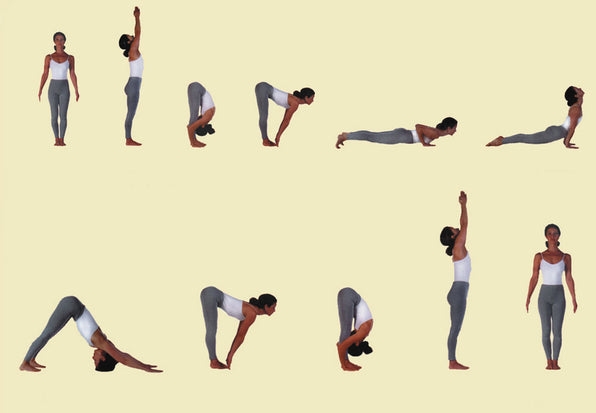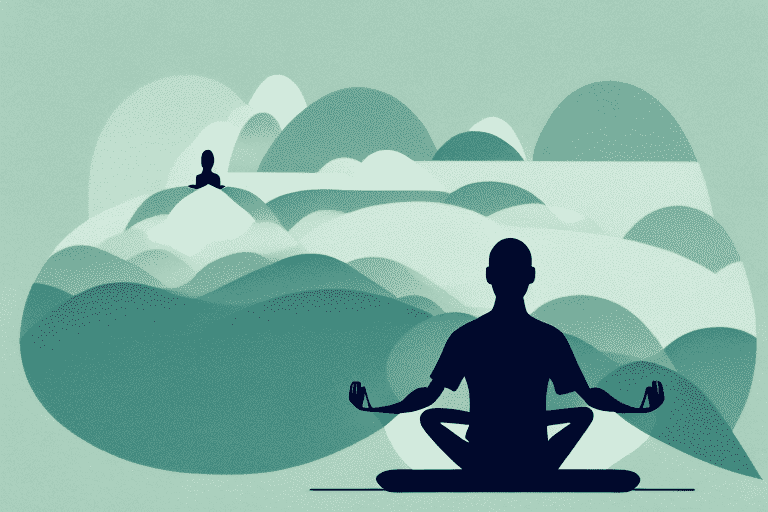“Understanding Alzheimer’s Disease: Causes, Symptoms, and Treatment OptionsAlzheimer’s disease is a complex neurodegenerative condition that affects millions worldwide. In this exploration, we delve into the causes, symptoms, and various treatment options available for individuals grappling with Alzheimer’s.

1.Causes of Alzheimer’s Disease: Unraveling the Complexity:
Alzheimer’s disease is primarily characterized by the accumulation of abnormal protein deposits in the brain. While the exact causes remain elusive, genetic factors, lifestyle, and environmental elements may contribute. Research suggests a combination of genetic predisposition and environmental factors may increase the risk.
2. Symptoms: Navigating the Cognitive Decline:
The symptoms of Alzheimer’s often start subtly, progressing to severe cognitive impairment. Early signs include memory loss, confusion, and difficulty in problem-solving. As the disease advances, individuals may experience challenges in communication, mood swings, and even changes in personality. Recognizing these symptoms early is crucial for timely intervention.
3. Diagnosis: Shedding Light on Cognitive Assessments:
Accurate diagnosis involves a comprehensive assessment of cognitive function, medical history, and sometimes imaging tests. While there’s no definitive test for Alzheimer’s, medical professionals use a combination of tools to rule out other potential causes of cognitive decline.
4. Treatment Approaches: Nurturing Cognitive Health:
While there is no cure for Alzheimer’s disease, various treatment strategies aim to manage symptoms and enhance quality of life. Medications such as cholinesterase inhibitors may help temporarily improve cognitive function. Non-pharmacological interventions, including cognitive stimulation, physical exercise, and a healthy diet, play a pivotal role in overall management.
5. Care and Support: Empowering Individuals and Families:
Alzheimer’s often requires a multidisciplinary approach, involving caregivers, family members, and healthcare professionals. Support groups, counseling, and educational resources empower both individuals with Alzheimer’s and their families to navigate the challenges associated with the disease.
6. Research and Future Prospects: Unveiling Hope:
Ongoing research into Alzheimer’s disease aims to unlock new insights into its causes and potential treatments. Advances in neurology, genetics, and innovative therapies offer a glimpse of hope for the future, fostering a collective commitment to combating this prevalent and challenging condition.
TREATMENT :
1.Indian Ayurveda treatment for Alzheimer’s Disease:
Alzheimer’s disease poses intricate challenges, but with increasing awareness, early detection, and ongoing research, strides are being made in understanding and managing this complex condition. This exploration serves as a guide for those seeking information on the causes, symptoms, and treatment options available in the journey of Alzheimer’s.
Ayurveda, the traditional system of medicine in India, offers holistic approaches to promote overall well-being, including addressing cognitive health. It’s important to note that while Ayurveda may offer supportive measures, there isn’t a definitive cure for Alzheimer’s disease. Here are some Ayurvedic principles and remedies that are often considered
2.Herbal Supplements for Alzheimer’s Disease:
- Brahmi (Bacopa monnieri): Known for its cognitive-enhancing properties, Brahmi is often used to support memory and mental clarity.

- Ashwagandha (Withania somnifera): An adaptogenic herb, Ashwagandha is believed to reduce stress and promote overall brain health.

3.Dietary Recommendations for Alzheimer’s Disease:
- Turmeric (Curcuma longa): Rich in curcumin, turmeric has anti-inflammatory and antioxidant properties. It is believed to support brain health and may be consumed as part of the diet.
- Ghee (Clarified Butter): Ghee is considered beneficial for brain health in Ayurveda. Consuming moderate amounts may be recommended.
4.Lifestyle Practices for Alzheimer’s Disease:
- Yoga and Meditation: Regular practice of yoga and meditation is thought to calm the mind, reduce stress, and support overall well-being.
- Pranayama (Breath Control): Deep breathing exercises, a component of pranayama, are believed to enhance oxygen supply to the brain.
5.Ayurvedic Therapies :
- Shirodhara: This involves a continuous flow of warm oil onto the forehead, promoting relaxation and balancing the nervous system.
- Nasya: Nasal administration of herbal oils may be recommended to support mental clarity.
6.Ayurvedic Formulations:
Saraswatarishta: A herbal formulation believed to enhance cognitive function and improve memory.
Brahmi Ghrita: Medicated ghee containing Brahmi, used for its potential neuroprotective effects.
Prevention
While Alzheimer’s disease itself cannot be entirely prevented, adopting certain lifestyle modifications can help mitigate associated risks. Research indicates a significant correlation between cardiovascular health and the development of dementia, suggesting that lifestyle changes can play a crucial role.
To promote a heart-healthy lifestyle and potentially reduce the risk of dementia, consider incorporating the following practices:
Regular Exercise:
Engage in consistent physical activity to support overall health and well-being. Regular exercise has been linked to improved cardiovascular health, which, in turn, may contribute to a lower risk of dementia.
Balanced Diet:
Embrace a diet rich in fresh fruits, vegetables, and healthy oils while minimizing saturated fats. The Mediterranean diet, known for its heart-healthy benefits, is often recommended as part of a dementia risk reduction strategy.
Management of Cardiovascular Conditions:
Adhere to treatment guidelines for conditions like high blood pressure, diabetes, and high cholesterol. Effectively managing these cardiovascular risk factors has been associated with a potential reduction in dementia risk.
Smoking Cessation:
Seek professional assistance to quit smoking, as smoking is a recognized risk factor for various health issues, including dementia.
Yoga for Alzheimer’s-disease
While yoga cannot cure Alzheimer’s disease, it may offer supportive practices that focus on gentle movement, relaxation, and mindfulness. These techniques can contribute to the overall well-being of individuals with Alzheimer’s and may help manage some associated symptoms. It’s important to approach these practices with sensitivity and adapt them based on individual abilities. Always consult with healthcare professionals before incorporating new activities.
Here are some yoga techniques that may be beneficial:
Chair Yoga:

- Practice: Gentle seated poses and modified stretches while sitting in a chair.
- Benefits: Improves flexibility, encourages gentle movement, and enhances circulation.
Breath Awareness (Pranayama):

- Practice: Slow, mindful breathing exercises, such as deep belly breathing or alternate nostril breathing.
- Benefits: Calms the nervous system, reduces stress, and promotes relaxation.
Mindful Movement:

Practice: Slow and intentional movements, such as Modified Sun Salutations or Gentle Seated Twists.
Benefits: Enhances body awareness, maintains mobility, and fosters a connection between movement and breath.
Guided Meditation:

- Practice: Simple guided meditation sessions focusing on breath awareness or loving-kindness meditation.
- Benefits: Promotes mental clarity, reduces anxiety, and provides moments of calm.
Sensory Stimulation with Props:

- Practice: Using props like textured objects or scented items to engage the senses during meditation or movement. example:sight,touch,smell ,sound & taste stimulation .
- Benefits: Stimulates sensory perception and may evoke positive memories.
Music and Mantra:

- Practice: Listening to calming music or chanting simple mantras.
- Benefits: Enhances mood, provides a sense of comfort, and can be a source of joy.
Adapted Relaxation Poses:
- Practice: Supported Savasana (Corpse Pose) with props to encourage relaxation.
- Benefits: Aids in stress reduction, promotes a sense of peace, and supports restful sleep.
Partner or Group Yoga:

- Practice: Gentle, synchronized movements or simple partner stretches.
- Benefits: Encourages social interaction, fosters a sense of connection, and provides emotional support.
It’s crucial to tailor these practices to the individual’s abilities, preferences, and comfort levels. The emphasis is on creating a positive and supportive environment that enhances the overall quality of life for individuals with Alzheimer’s. Always involve caregivers or healthcare professionals in the planning and implementation of these practices.
Prevention for disease
A notable long-term study conducted in Finland demonstrated that personalized lifestyle interventions, focusing on diet, exercise, and social activities, were effective in reducing cognitive decline among individuals at risk of dementia.
Similarly, an Australian study reported positive cognitive outcomes for those at risk of dementia who underwent coaching sessions emphasizing lifestyle changes, compared to a control group.
Numerous research findings underscore the importance of staying mentally and socially engaged as a means of preserving cognitive function and reducing the risk of Alzheimer’s disease. Activities such as attending social events, reading, dancing, playing board games, creating art, and playing musical instruments are recommended for maintaining mental and social stimulation. Incorporating these practices into daily life may contribute to overall cognitive well-being.
It’s essential to approach Ayurvedic treatments under the guidance of qualified practitioners who can tailor recommendations based on an individual’s constitution (dosha) and specific health conditions. Ayurveda emphasizes a personalized approach, considering factors such as diet, lifestyle, and mental well-being.
While Ayurveda may provide supportive measures, it is crucial for individuals with Alzheimer’s or related conditions to seek advice from conventional healthcare professionals for a comprehensive and well-integrated approach to care.
NOTE- Always consult with healthcare providers before incorporating new supplements or therapies, especially in the context of a complex condition like Alzheimer’s disease.
LEARN ABOUT BENIFITS OF MEDITATION
LEARN ABOUT DEEP SLEEP MEDITATION
ARTICLE SOURCE
ARTICLE SOURCE
